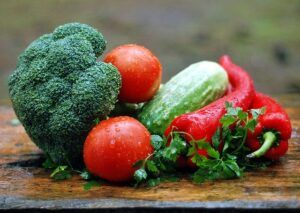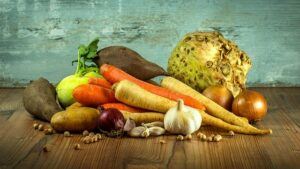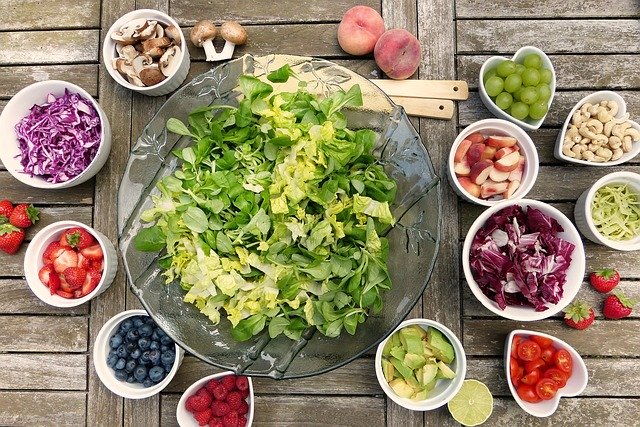You’ve made a decision to leave your addiction behind and are in the preparation stage of change. You have a support system in place, you’re identifying triggers, and have started to lay a foundation for success. You’ve identified some activities to fill the void and some relaxation and stress reduction techniques for when things get challenging. Have you stopped to think about the role of nutrition in your recovery plan?
Wherever you are on your recovery path, it is important to look at the role of nutrition. Diet and nutrition are usually overlooked while someone is active in their addiction. Substance use or stressful addictive behaviors take a major toll on your body, good nutrition can help your body to heal, rebuild, and gain health.
Why Is Nutrition Important?
The body needs a variety of vitamins, minerals, and nutrients to thrive. In order for the brain and body to function normally it needs fuel. Creating and maintaining a balanced diet is a key component in having a healthy lifestyle in recovery.
While active in your addiction, and depending on your drug of choice, you likely did damage to your body.
Alcohol suppresses the appetite, can cause liver damage, possibly lead to diabetes, and lead to poor food choices when you do eat.
Depending on which drug you were using, along with lack of appetite and poor food choices, stimulants, for instance can increase the speed at which your body uses up energy, cause severe dehydration, and vitamin deficiency. Other substances can cause a loss of nutrients thorough vomiting and or diarrhea.
Substance use can cause gut damage so that you aren’t absorbing nutrients. Opiods can cause chronic constipation and an overuse of laxatives that can impact healthy bodily function by creating an electrolyte imbalance and gastrointestinal conditions.
If you engaged in a behavioral addiction that added stress to your life you may have similar issues. Stress can impact appetite causing a loss of appetite or lead to using food as a coping strategy impacting weight and physical health. Possible impact on finances creating insufficient funds to buy good nutritional foods, lack of time for food prep and meal planning are also potential issues. Stress levels increase with any addiction. Stress impacts your body’s ability to function at optimal levels and absorb the nutrition that is available. Behavioral addictions can cause as much bodily disease as drugs and alcohol because of the increased stress level.
While these are some common side effects of maintaining a poor diet during active addiction, it is by no means an all-inclusive list.
Nutrition And The Body
Good nutrition impacts healthy brain functioning. When the brain isn’t getting the proper fuel it isn’t producing the brain chemicals, the neurotransmitters, that help to keep our mood in balance, This can create or exacerbate the irritability and anxiety that comes along with losing your coping strategy. It can affect sleep and memory, it can also increase dissatisfaction and depression, making your recovery path more challenging.
During active addiction self care like most things is no longer a priority. Proper diet and nutrition aren’t given a thought. During addiction, money and energy are given to continued use of the addiction instead of on creating a healthy lifestyle.
Continuing to neglect good nutrition begins to interfere with your body’s well-being and ability to function to its best.
It can manifest with:
- Cognitive impairment, loss of memory
- Loss of muscle mass
- Lower body temperature
- Suppressed Immune system
- Depression
- Vitamin Deficiencies
Not paying attention to healthy eating and nutrition is often a byproduct of addiction. Over time, it will disrupt many essential functions of the brain and body.
What Should You Eat In Recovery
I am not a dietitian or nutritionist and if you are dealing with severe health issues it would be in your best interest to work with someone that can identify the best diet for your health concerns.
Some guidelines, if you aren’t dealing with serious health issues, include eating a balanced diet that is high in vitamins and minerals, complex carbohydrates, and lean proteins. In early recovery you will want to focus on foods that are high in carbohydrates like legumes (beans, lentils) and root vegetables (potatoes, sweet potatoes, carrots), because those will help to increase the levels of serotonin in the brain.
 It is not uncommon to have vitamin deficiencies because drugs and alcohol can impact the body’s ability to absorb the nutrients from food. You may want to get some test run to see if you are dealing with any major deficiencies. In the meantime load up on veggies and fruits, a diet high in greens and fruits will be high in the vitamins and minerals your body needs. You may initially want to supplement with a high quality vitamin.
It is not uncommon to have vitamin deficiencies because drugs and alcohol can impact the body’s ability to absorb the nutrients from food. You may want to get some test run to see if you are dealing with any major deficiencies. In the meantime load up on veggies and fruits, a diet high in greens and fruits will be high in the vitamins and minerals your body needs. You may initially want to supplement with a high quality vitamin.
Remember if you have been using drugs, alcohol, or stressing your body out for a long period, it will take time for your body to heal and recover, have patience. Even with a healthy diet it may take a year or longer to regain optimal health.
I am a proponent of a plant based diet and although I know that isn’t for everyone I will encourage you to lean towards whole unprocessed foods as you create your recovery meal plan. Some things to keep in mind as you are creating your food plan, include:
- Foods high in complex carbohydrates – grains, fruits, and veggies
- Calcium rich foods – green veggies such as kale are a good source of calcium, if you choose to go plant based, tofu is rich in calcium as are many of the plant based milks.
- Healthy proteins – lean meats if you choose, tofu, and even most vegetables have some protein.
- Healthy fats – such as those in nuts, seeds, and avocados.
Maintaining Good Nutrition In Recovery
- Have your support system, if you live with someone get them on board with meal planning and food prep.
- Prepare your menu and grocery list in advance.

- Have lots of healthy easy access foods on hand.
- Try new recipes and foods to keep it interesting.
- Go for whole unprocessed foods, this may take more time for preparing meals but will be much higher in nutrition.
- Try to eat regularly so that you don’t get ravenous and reach for the junk food, that can quickly sabotage your efforts.
- if you find yourself stress eating, stop and breathe, go for a walk, or do some journaling, don’t get in the habit of using food as a coping strategy.
- Along with food, get exercise and practice relaxation daily, remember this is part of a body, mind, and spirit recovery plan.
Continued Nutrition In Addiction Recovery
Eating a healthy diet is crucial to your recovery, some benefits will be increased energy, healthy immune system, improved mood, better memory. It will take time to correct any deficiencies that occurred in your body during your addiction. You likely did some damage to your body, just know if you stay the course with proper nutrition along with a concentration on a balanced recovery plan that includes, support, exercise, sleep, and relaxation techniques, along with some of the other aspects of emotional and mental health you will give yourself an increased probability of success on your recovery path.
Nutrition is an important part of finding balance in recovery.
Resources
If you are interested in the idea of going plant based here are a few posts that support a plant based diet in recovery and a resource to get recipes and a food plan.
http://www.chopratreatmentcenter.com/blog/2018/11/08/3-ways-plant-based-diet-addiction-recovery/
https://www.purplecarrot.com/blog/proper-nutrition-through-addiction-recovery/
https://www.forksoverknives.com/meal-planner-2/
Also wanted to suggest a book to help with your goal towards healthy nutrition in recovery.
Peace and Joy on your recovery path!
